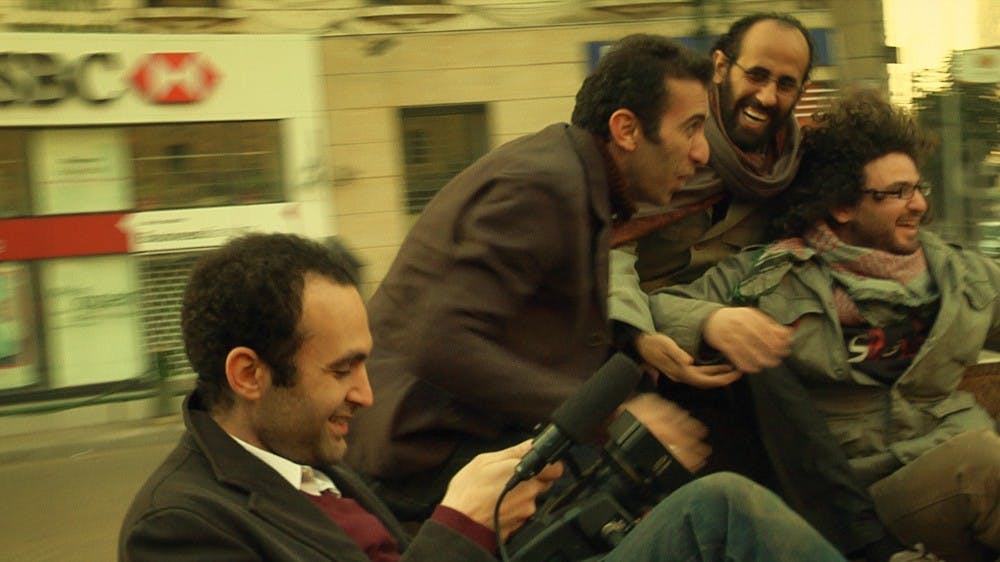Tamer El Said will be in Bloomington 4 p.m. Friday at the IU Cinema for an on-stage interview and a screening of “In the Last Days of the City” at 7 p.m.
“In the Last Days of the City” is El Said’s first feature film as director, according to the IU Cinema’s website. It is a fictional film about a filmmaker in Cairo, Egypt, who is trying to capture the city and everything changing around him. The feature was filmed in Egypt, Beirut, Baghdad and Berlin for two years before the eruption of a revolution in Egypt.
The film is in Arabic but has English subtitles and is free but ticketed. The Indiana Daily Student spoke to El Said over the phone regarding his new film.
Answers have been edited for clarity.
INDIANA DAILY STUDENT: What did you enjoy the most while directing this film?
EL SAID: For me, filmmaking is a way of engaging with life. It’s a way to understand myself, and to work on myself to become a better person. I see filmmaking as a research project to find a way of engaging with the elements around me. In life, I have many questions and wonder about everything around me. Through making things I share these questions, and I even think of them differently. I try to develop a bit of understanding to the mystery around them.
IDS: Did you see yourself reflected in the main character, played by Khalid Abdalla? In what ways?
EL SAID: You know, I’m always asked this question, and my answer is no. It’s not an autobiography, for different reasons. I know that it’s a film about a filmmaker trying to make his success, which is very similar to my situation. There is even a lot of similarities between us, but basically when I look at this film, I don’t see myself. I would say it’s not an autobiographical film, it’s a personal film, and there is a difference. A critic friend of mine called it an “autoportrait,” like a self-portrait. Which is very different than making a photograph.
There are many things that I can define myself as this kind of character who has a very heavy past that he cannot get over his shoulders and living in a very suffocating present and can’t see a future. On the other hand, what I also say will help is this urge, this need to document and film things around him because he sees that everything will collapse and he wants to keep a memory or a moment from what he is living through. This feeling that something big is going to happen and this will change everything around me, and the urge to film everything before it collapses is also something that I share with him.
But, in general, I see Khalid as an independent character. We share things but he is very different than me in reality.
IDS: How was filming this fictional film different than filming documentaries?
EL SAID: This film was made in the blurry area between fiction and documentary. What I say to my students when we speak about it is: when you make fiction, you are like a farmer. You water your seeds and you take care of your plants while they’re growing every day. Your work is based on patience. You give time and you take care of your plants every day. The more you give, the more you will get; a beautiful tree, or a very delicious fruit.
When you make a documentary, you are like a fisherman. You cast your net and you hope that the sea will give you some fish, but part of your job is to trust the sea. If you don’t trust the sea, the sea won’t give you anything. So, making the film was to find the right balance between being a farmer and being a fisherman.
IDS: What message do you want audiences to receive from watching this film?
EL SAID: I want them to reflect and think of everything around them and share that with me. I don’t think a film should convey a certain moral or political matters. A film is a way of reflecting, using the image and sound in a creative way to express a position toward the whole world.
I feel like the film should be a very personal experience, from the perspective of making it and also the perspective of watching it. For me, if I make a film that is unifying the audience with one message, I consider this a failure. It’s horrible. I don’t want to unify the people.
I always say I project the film to the audience, but also the audience is projecting their lives on the film. I look for a very mutual and eye-to-eye level relation with the audience. I’m not there to educate them, or tell them how to live their lives. I’m there to share my questions with them. I think some things are giving answers and some things are raising questions. For me, I wish to raise questions more than give answers. I wish that every member of the audience is having a different experience with the film.
The film will also be shown at 7 p.m. Saturday, but El Said will only be present during the Friday screening.




